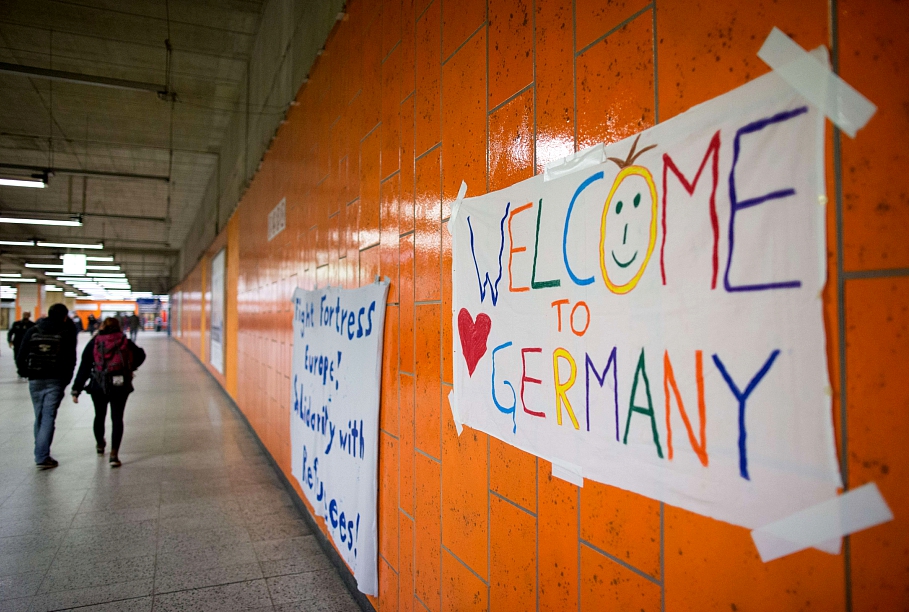Speaking on LTV Tuesday morning, Prime Minister Laimdota Straujuma suggested the agreed number of refugees Latvia will accept - currently 250 - is likely to rise.
"I do not believe that we will be able to avoid a gesture of solidarity," Straujuma said, but added that a larger figure could only be accepted with the agreement of all three parties within her coalition - which seems a remote possibility given the implacable opposition of the nationalist National Alliance.
Straujuma also noted her "completely clear" opposition to accepting economic migrants rather than genuine refugees.
"This massive stream [of migrants] is quite strange. African countries have been unstable for years, but now the flow is very strong," said Straujuma.
Following a meeting Monday evening, a statement was released in the name of President Raimonds Vejonis, Saeima speaker Inara Murniece, Prime Minister Laimdota Straujuma, Foreign Minister Edgars Rinkevics and Saeima foreign Affairs Committee chairman Eriks Ojars Kalnins that re-iterated Latvia's desire for a "voluntary" system of quotas despite increasing evidence that countries such as France, Germany and Italy are in favor of setting up a compulsory system of distribution for refugees.
"In deference to the possibility that the European Commission (EC) will on Wednesday come up with the suggestion that EU countries take in additional refugees, Latvia's position is to oppose mandatory quotas and remain on a voluntary basis while expressing solidarity and support in efforts to tackle the problem," the statement said.
"The officials agreed that the discussion of specific figures is not yet on the agenda and to wait for a specific EC proposal," it added, signalling Latvia's wait-and-see approach.
"Before talking more about the mechanisms European countries will use to deal with the massive influx of refugees, it is importance as soon as possible to find clear answers to the questions addressed by the inter-institutional working group on refugees," said Vejonis.
On Monday France's President Francois Hollande said he favored a "permanent and obligatory" system of distribution of refugees among EU member states and that he had discussed the matter with German Chancellor Angela Merkel.





























